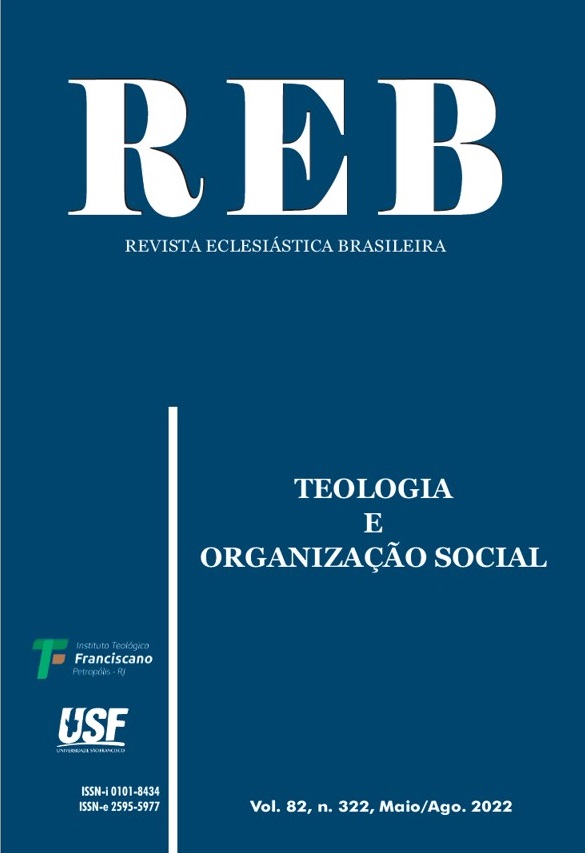A Igreja católica e as questões sociais e políticas no Brasil (1950-1960)
Buscando novos sentidos à pastoral
DOI:
https://doi.org/10.29386/reb.v82i322.4233Resumen
No Brasil da segunda metade do século XX (1950-1960), a Igreja Católica participou de vários projetos do campo político-social, dentre eles a elaboração de uma proposta de reforma agrária. No entanto, dois detalhes chamam a atenção dos pesquisadores: entender quais eram os interesses da Igreja e se ela influenciou e/ou também foi influenciada pelos movimentos políticos de então. Diante desses fatos, alguns autores, com o intuito de esclarecer as pretensões subjacentes à Igreja, fizeram suas interpretações. O artigo traz à luz tais autores, nomeadamente Thomas Bruneau, Luiz Gonzaga de Souza Lima, Scott Mainwaring e Michel Löwy, e busca dialogar com as teorias levantadas por eles, no intuito de trazer luz à questão das articulações pastorais da Igreja, à época, no campo político e agrário, bem como seus significados.
Abstract: In Brazil in the second half of the 20th century (1950-1960), the Catholic Church participated in several projects in the political-social field, including the elaboration of a proposal for agrarian reform. However, two details call the researchers’ attention: understanding what the Church’s interests were and whether it influenced and/or was also influenced by the political movements of the time. In view of these facts, some authors, in order to clarify the underlying claims of the Church, made their interpretations. The article brings to light such authors, namely Thomas Bruneau, Luiz Gonzaga de Souza Lima, Scott Mainwaring and Michel Löwy, and seeks to dialogue with the theories raised by them in order to shed light on the issue of the pastoral articulations of the Church, at the time, in the political and agrarian field, as well as their meanings.
Descargas
Descargas
Publicado
Cómo citar
Número
Sección
Licencia
Derechos de autor 2022 Revista Eclesiástica Brasileira

Esta obra está bajo una licencia internacional Creative Commons Atribución 4.0.
Os autores cedem os direitos autorais; como gratificação, a REB oferece dois exemplares ao Autor de um artigo.
A REB adere à licença não comercial (Creative Commons). Portanto, é permitida cópia, distribuição e exibição dos textos, respeitados os direitos autorais e citada a fonte de sua proveniência.


